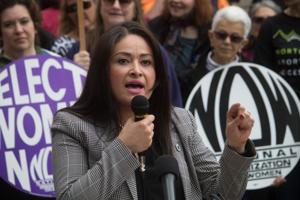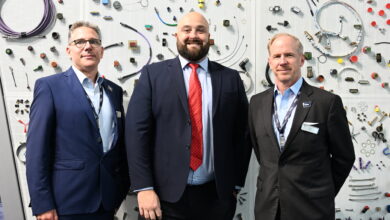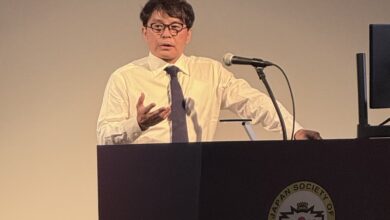Vying for mayor, Lorena González rises to challenge ‘The Seattle Process’

(The Center Square) – Seattle City Council President Lorena González is closer to the mayorship than anyone in the Puget Sound, and she wants every Seattleite to feel just as close to the office.
The daughter of two migrant farmworkers, González grew up in the small town of Grandview, Washington before putting herself through law school and working as a civil rights attorney who won a $150,000 settlement from the Seattle Police Department in 2012 on behalf of a Latino man in a police misconduct case. She was elected to the Seattle City Council in 2015 running as a progressive voice in a wealthy city at odds with the calls for change coming from its streets.
In her bid for mayor, González is campaigning on her experience as a six-year veteran of city government who will be the steady hand Seattle needs to survive a post-COVID world and see to it federal stimulus finds its way to small businesses.
“For me, 2020 was a difficult year for all of us, across the country, Seattle being no exception,” González said. “It’s really important to have leadership in the mayor’s office that has a strong set of experiences in local city government.”
Serving on the city council, González has become noted for her even-tempered deliberation locals have come to associate with “The Seattle Process.” The term, first defined in a 1983 Seattle Weekly editorial as “the usual Seattle process of seeking consensus through exhaustion,” has become a popular euphemism for Seattleites’ impatience with the political indecision many say governs city hall.
For González, ending the city’s declared homelessness crisis will demand an ‘all of the above’ approach, from resettling the homeless in motels and building more tiny home villages to rewriting city zoning codes and ensuring new housing developers invest in low-income housing construction.
“We have a mandatory housing affordability program that unfortunately has not created the incentive of building affordable housing on site,” González said. “We need to truly make that program mandatory so that we are increasing our affordable housing options for our low-income population right now instead of three years from now.”
In the years since González was first elected, Seattle has seen rent rise by 57% with one out of two households spending 30% of their income on it. González admits urgency is one virtue Seattle City Hall has had in short supply, especially includes getting the city off of natural gas and meeting its climate goals.
“I think that the climate challenges facing our city become more evident and apparent every summer when we are faced with the realities of choking on our own air,” González said. “What we should be building is a network of options that are more climate friendly than a single occupancy vehicle fueled by gas.”
González is always quick to point out her list of achievements on the city council, which include passing new tenant protections and a payroll tax on big business. As one of eight on the city council who handed 9.5 acres of downtown Seattle to Amazon in 2016, González often finds herself playing defense with Seattleites who see her as too comfortable with the retail giant.
“I think government is able to build parks, world class schools, and functioning infrastructure because of our tax revenue,” González said. “It’s important for good corporate neighbors to be meaningful contributors and our community.”
Like many in the Washington Legislature this session, González sees progressive taxation anything but a hindrance to big business.
“I haven’t seen anything that shows me a clear connection that taxes are the reason that people are leaving the city of Seattle,” González said.
González says Seattle should divest from its $346 million police budget, but she has no hints about what number strikes her fancy. Last summer, the city council cut less than 1% out of the police budget. Another 15% cut followed last fall. González backed both cuts, but neither came close to the 50% cut civic activists called for when they took to the streets in May.
The city’s approaching union negotiations with the Seattle Police Department are ripe for controversy. The department wades through some 19,000 complaints, a host of lawsuits, and hundreds of misconduct cases. Meanwhile, police union boss Mike Solan stands accused by the city council of being unfit for office as six of his own officers face federal investigation for the Jan. 6 invasion of the U.S. Capitol.
In Seattle, police reform is a piecemeal process González says is the byproduct of an arbitration system too lenient on bad cops whose appeals processes can be far-reaching in the hands of union arbitrators who often have final say.
“The challenge will be to reform our arbitration system that allows for that outcome to happen and make sure the deck isn’t stacked in favor of police officers who have been disciplined but who are getting two, sometimes three bites of the same apple to their benefit,” González said. “The next mayor is going to have to be willing to stand up to the very powerful police guild and to stand on the side of accountability.”
First in line for the office on Seattle City Hall’s seventh floor, González is seen as the favorite to claim the mayor’s podium. To date, campaign finance records show her among the top three fundraisers in the race behind nonprofit housing advocate Colleen Echohawk and ahead of architect Andrew Grant Houston.
Seattleites will sign and mail in their ballots to choose their next mayor this fall on November 2.
Disclaimer: This content is distributed by The Center Square



